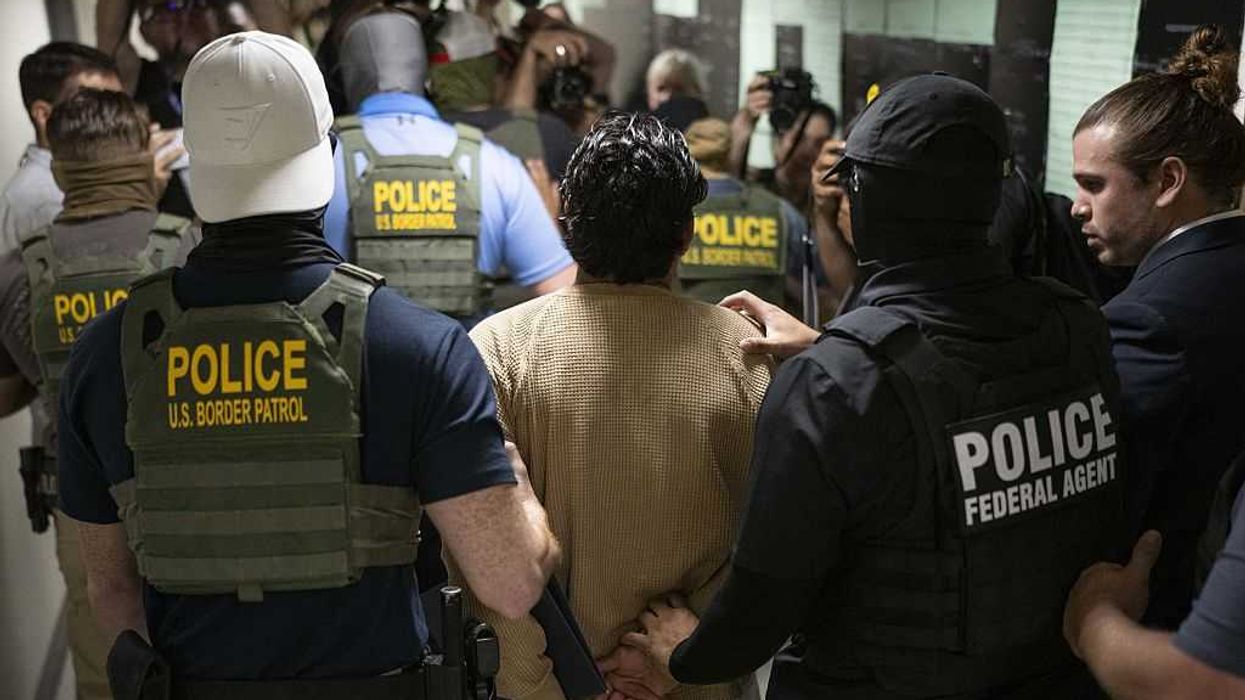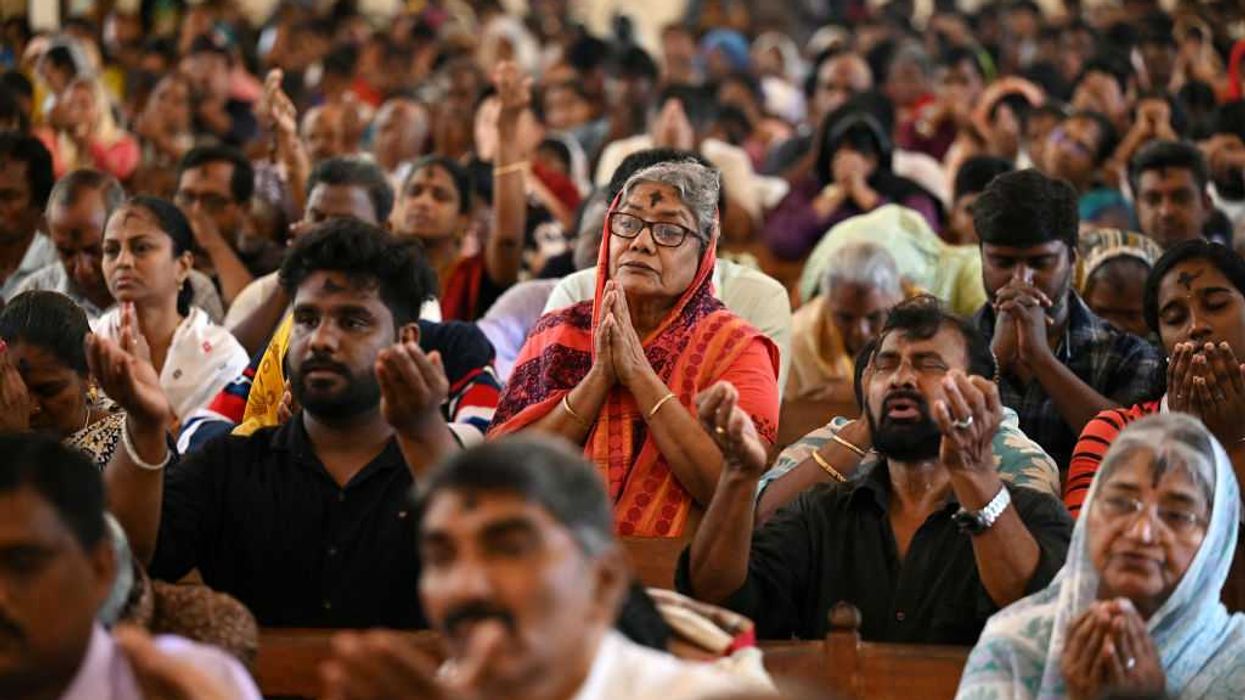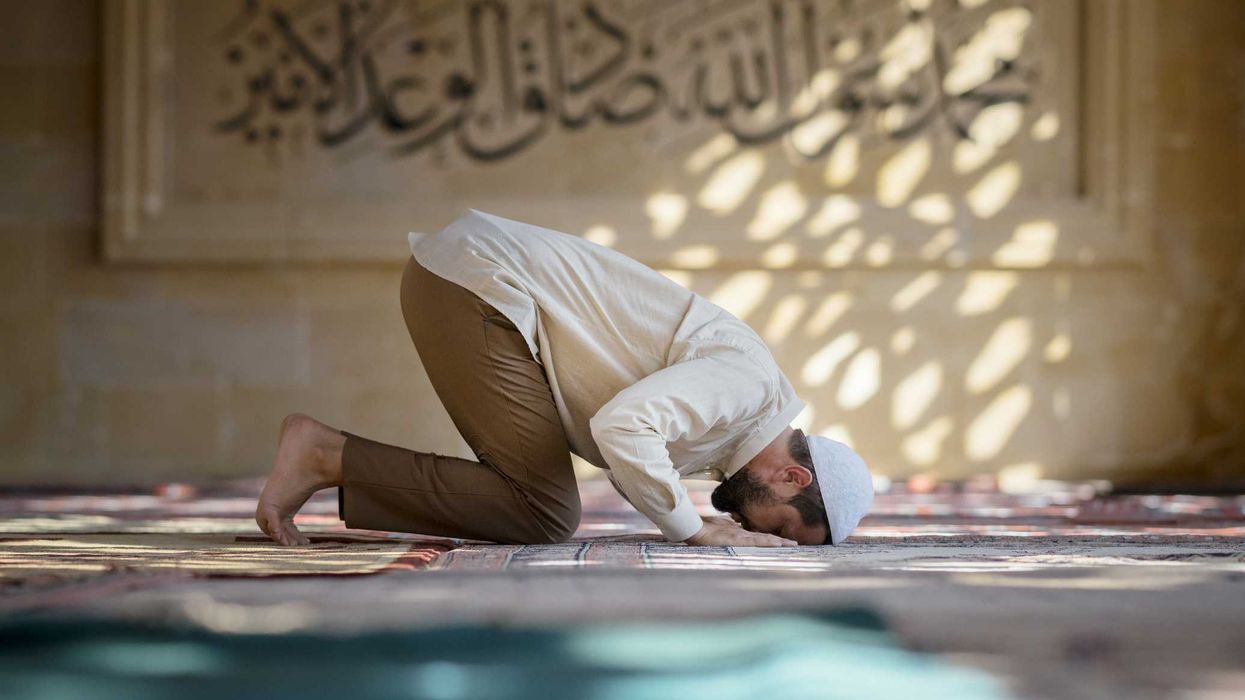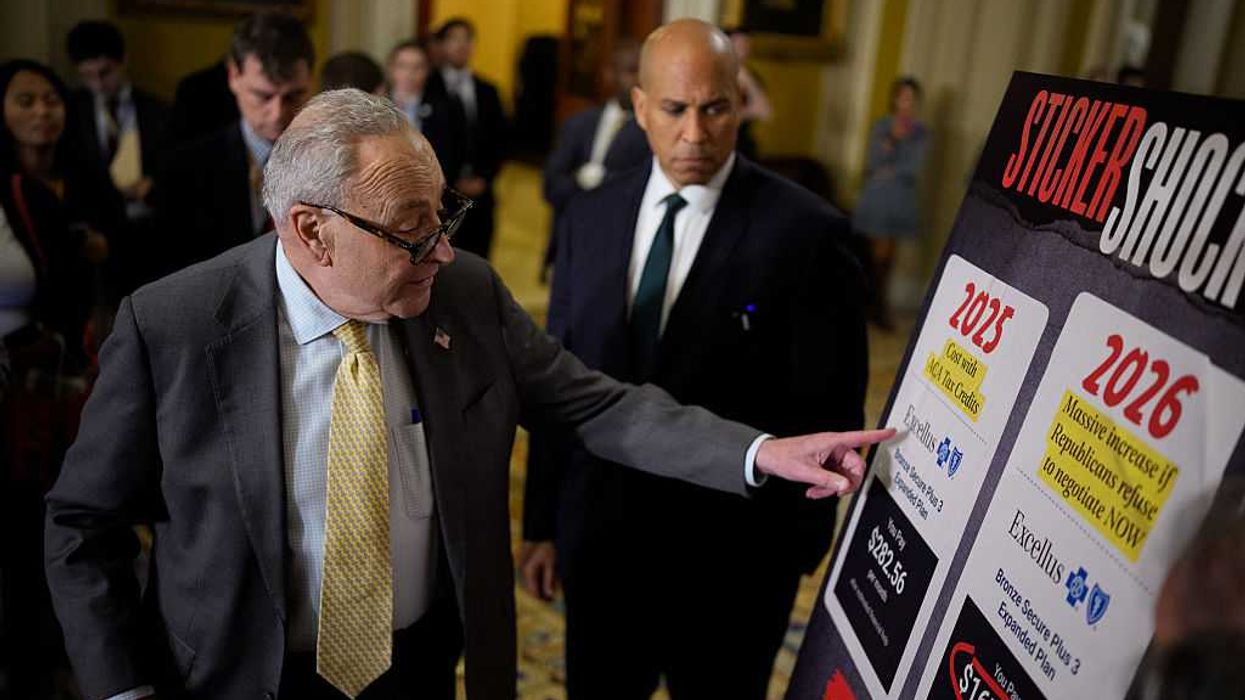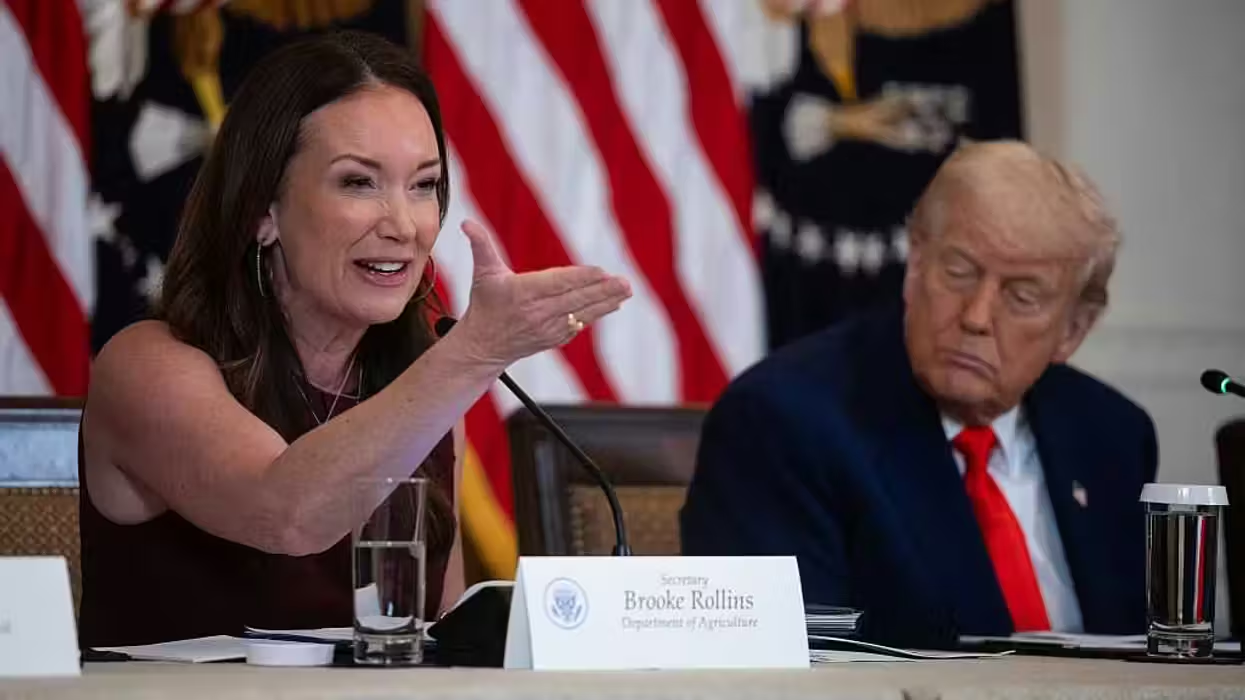
© 2025 Blaze Media LLC. All rights reserved.
GOP senator warns that religious freedom is 'under attack' in America
October 07, 2014
Sen. Orrin Hatch (R-Utah) warned over the weekend that religious liberty is under attack in America, a problem made worse by media bias and people's lack of knowledge about the Constitution's protections for religion.
But Hatch said people can fight back by working to ensure religion is not a topic that is taboo in schools or in other public settings, and by showing people how religion can help people in need in America.
 Sen. Orrin Hatch (R-Utah) says people need to fight harder to ensure religion can still be discussed in the public arena
Sen. Orrin Hatch (R-Utah) says people need to fight harder to ensure religion can still be discussed in the public arena
Image via Orrin Hatch/YouTube
"This is an unsettled and unsettling time for religious liberty," Hatch said in a speech at Brigham Young University Sunday night. "Both at home and abroad, religious liberty is under attack. What was once a broad consensus here in the United States that religious freedom deserves special protection has recently crumbled."
Hatch said America's past is deeply rooted in religious freedom. "For nearly two centuries before the founding of this Republic, one religious community after another came here to live their faith," he said. "Puritans, Congregationalists, Roman Catholics, Jews, Quakers, Baptists, Presbyterians, and Methodists all found refuge on these shores."
He said that history makes religion a "special and prefer value" in the United States, one that is a reason for America's existence, and one that enjoys special protections in the Constitution.
But Hatch warned that the decline in knowledge about the Constitution is weakening that protection. "Citizens cannot understand, let alone defend, what they do not know," he said.
Since the 1930s, activist judges have been chipping away at religious freedom, he argued. For example, a 1992 Supreme Court ruling said an invocation at a public school graduation ceremony was establishment of religion prohibited by the First Amendment.
"The argument seemed to be, at least in the public school context, that the mere uttering of religious words in the form of a prayer was an unconstitutional establishment of religion," he said. Hatch also cited a court decision that said there don't have to be religious exemptions for bans on controlled substances.
These sorts of changes, he said, is what drove him to work for passage of the Religious Freedom Restoration Act. That law says the government can't burden a person's exercise of religious freedom unless a compelling interest is advanced, and if the government chooses the least-restrictive way to advance this interest.
He noted that the House passed this bill unanimously, and the Senate passed it 97-3. But while Congress once supported the concepts in RFRA, he said that consensus has slipped away over the last few years.
For example, in the Hobby Lobby case, the Supreme Court agreed with the plaintiff that Obamacare's birth control mandate didn't allow for the free exercise of religion. But he noted that many member of Congress opposed it, and that Democrats supported legislation to exempt all health care laws and regulations from RFRA.
"In 1993, Congress was nearly unanimous that the free exercise of religion was to continue its preferred place in our hierarchy of values," Hatch said. "Just 20 years later, many of the very Senators and Congressmen who supported RFRA are now pushing legislation that would render it impotent."
He also said the Obama administration has argued that religious freedom is not a special right guaranteed by the Constitution, and instead should be seen as just an ordinary right that Congress can grant through statute.
In a 2012 case, for example, the Obama administration argued against a religious group by saying there are no special rights for religious groups, which should be treated like any other group.
"The administration, in effect, was asking the Court to read the Free Exercise Clause right out of the First Amendment and hold that a church is no different from any other group in terms of its relation to government," he said. "Churches, in the administration's view, are just another social group."
To fight back against this trend, Hatch suggested that religious people must fight harder to ensure religious topics are not ignored in schools or elsewhere in public.
"This does not mean we should mandate school prayer," he said. "But it does mean we should allow students and government leaders to express religious views without condemnation and without criticism that religion is a purely private affair."
He said more effort needs to be made to show religion in a better light, and said the media has played a role in showing only the bad side of religion.
"We are bombarded constantly with negative news about religious leaders," he said. "Pastors embezzling from their congregations, ministers cheating on their wives, priests abusing young worshippers. To be sure, there are bad apples in religious groups as there are everywhere. But the few bad apples do not spoil the whole barrel."
Want to leave a tip?
We answer to you. Help keep our content free of advertisers and big tech censorship by leaving a tip today.
Want to join the conversation?
Already a subscriber?
more stories
Sign up for the Blaze newsletter
By signing up, you agree to our Privacy Policy and Terms of Use, and agree to receive content that may sometimes include advertisements. You may opt out at any time.
Related Content
© 2025 Blaze Media LLC. All rights reserved.
Get the stories that matter most delivered directly to your inbox.
By signing up, you agree to our Privacy Policy and Terms of Use, and agree to receive content that may sometimes include advertisements. You may opt out at any time.
